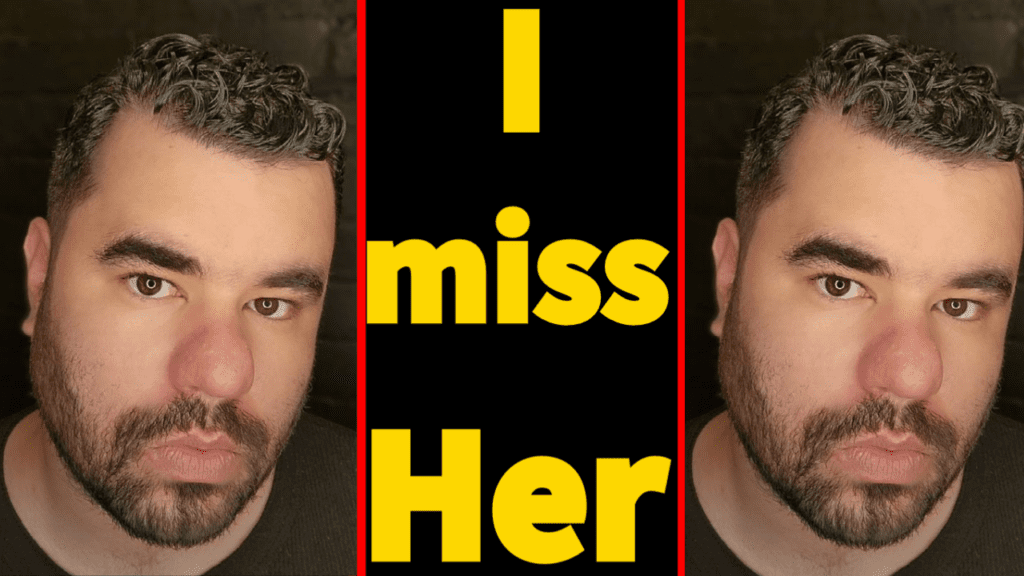
It can be discouraging to feel like you may never find love, but it’s important to remember that everyone’s journey is different. Here are seven signs you may feel like you will never find love and some things you can do to help:
1) You have unrealistic expectations:
If you have a long list of specific criteria that your partner must meet, it may be hard to find someone who fits all of them. Try to focus on the core values and qualities that are most important to you and be open to meeting people who may not fit all of your criteria.
If you find that your expectations are indeed unrealistic, it may be helpful to adjust them to better align with your current circumstances and resources. This can involve setting more achievable goals, reevaluating your priorities, or seeking additional support or resources to help you achieve your goals.
Ultimately, it’s important to be kind and patient with yourself and to remember that change takes time and effort. By setting realistic expectations and taking proactive steps to achieve them, you can improve your overall well-being and sense of fulfillment.
2) You’re not putting yourself out there:
If you’re not actively looking for love or putting yourself in situations where you can meet new people, it may be hard to find a partner. Try joining social groups or dating apps, or asking friends to set you up with people they think you might like.
Putting yourself out there can involve taking risks, being vulnerable, and stepping outside of your comfort zone to pursue new opportunities and experiences. This can include things like joining a new social group, attending networking events, volunteering, or trying a new hobby or activity.
If you’re feeling like you’re not putting yourself out there enough, it can be helpful to take some time to reflect on what may be holding you back. Are you afraid of rejection or failure? Do you lack confidence in your abilities? Are you not sure where to start?
Once you’ve identified any potential barriers, you can begin to take steps to overcome them. This might involve building your confidence through practicing self-care, seeking support from friends or a professional counselor, or taking small steps to gradually build up your comfort level in new situations.
It’s important to remember that putting yourself out there can be challenging, but it can also be rewarding and lead to new opportunities and experiences. By being proactive and taking risks, you may discover new interests, meet new people, and achieve your goals. So don’t be afraid to take that first step and put yourself out there!
3) You have a negative attitude:
If you’re always negative about love and relationships, it can be hard to attract a partner who is positive and ready for a healthy relationship. Try to focus on the positive aspects of dating and relationships and avoid negative self-talk.
Having a negative attitude can impact many aspects of one’s life, including relationships, work performance, and overall well-being. It can make it difficult to find joy and satisfaction in life and can lead to increased stress, anxiety, and even depression.
If someone has pointed out that you have a negative attitude, it may be helpful to reflect on the reasons behind your negative thinking. Are you struggling with a particular challenge or issue? Are you dealing with unaddressed emotional or mental health issues? Do you feel unfulfilled or stuck in your current situation?
Once you’ve identified the root cause of your negative attitude, you can take steps to address it. This may involve seeking support from a therapist or counselor, practicing self-care, making positive changes in your life, or cultivating a more positive mindset through techniques like mindfulness and gratitude.
Remember that it’s okay to struggle with negative thoughts and feelings from time to time. But by taking proactive steps to address these thoughts and cultivate a more positive attitude, you can improve your overall well-being and find more joy and fulfillment in life.
4) You’re too picky:
While it’s important to have standards and know what you want in a partner, being too picky can prevent you from finding love. Try to be more open-minded and give people a chance, even if they don’t seem like your “type” at first.
While having high standards and knowing what you want in a partner can be a positive trait, being too picky can limit your options and make it difficult to connect with others. It’s important to strike a balance between being discerning and being open to new possibilities.
If someone has suggested that you’re too picky, it may be helpful to reflect on your expectations and preferences. Are they realistic? Are they limiting your options in a way that feels frustrating or unsatisfying?
Once you’ve identified any areas where you may be overly selective, you can begin to take steps to open yourself up to new possibilities. This might involve trying new things, meeting new people, or reevaluating your priorities and values.
It’s also important to remember that you deserve to find a partner who is a good match for you and meets your standards. However, it’s important to be realistic and flexible in your expectations, while also being true to yourself and what you want and needs in a relationship.
5) You have unresolved emotional baggage:

If you have unresolved emotional issues or trauma from past relationships, it can be hard to move on and find love. Consider working with a therapist to address these issues and help you move forward.
Unresolved emotional baggage can take many forms, including unresolved grief, trauma, or unprocessed emotions from past relationships or experiences. It can impact many aspects of one’s life, including relationships, work, and overall well-being.
If someone has suggested that you have unresolved emotional baggage, it may be helpful to reflect on the experiences or emotions that may be impacting you. Are you carrying around unresolved feelings of anger, sadness, or grief? Have you experienced trauma that you haven’t fully processed or addressed? Are you struggling with feelings of anxiety or depression that may be linked to past experiences?
Once you’ve identified the sources of your emotional baggage, you can take steps to address them. This may involve seeking support from a therapist or counselor, practicing self-care, or engaging in activities that help you process your emotions and experiences.
Remember that it’s okay to struggle with unresolved emotional baggage. But by taking proactive steps to address these issues, you can begin to move forward and find greater peace and fulfillment in your life.
6) You’re not ready for a relationship:
If you’re not emotionally or mentally ready for a relationship, it may be hard to find love. Take time to focus on yourself and work on any personal issues before seeking a partner.
If someone has suggested that you’re not ready for a relationship, it could mean that they see certain signs that you may not be in a good place to pursue a romantic connection at this time.
Being ready for a relationship can mean different things to different people, but some signs that you may not be ready for a relationship could include:
- You’re still processing the end of a previous relationship
- You’re not emotionally available or ready to commit to someone else
- You’re dealing with personal issues that require your attention and focus
- You’re not sure what you want in a partner or relationship
- You’re not in a stable place in your life, such as financial or career-wise.
If you’ve been told that you’re not ready for a relationship, it may be helpful to take some time to reflect on your situation and assess whether or not pursuing a relationship is the right choice for you at this time. It’s important to be honest with yourself about your emotional state and needs.
Taking some time to work on yourself, address any personal issues, and gain clarity on what you want in a relationship can help you become more ready for a healthy, fulfilling partnership in the future. Remember that it’s okay to take time to work on yourself and prioritize your own needs and well-being.
7) You’re not being your authentic self:
If you’re not being true to who you are or presenting a false image of yourself to others, it can be hard to find someone who truly connects with you. Focus on being your authentic self and being proud of who you are.
If someone has suggested that you’re not being your authentic self, it could mean that they feel you’re not being true to who you really are. It may be that you’re trying to fit in or conform to societal expectations, or that you’re not being true to your own values, beliefs, and personality.
Being your authentic self means being true to who you really are, including your unique personality, values, beliefs, and interests. It can be challenging to be yourself, especially in social situations where there may be pressure to fit in or conform to expectations.
If you’ve been told that you’re not being your authentic self, it may be helpful to reflect on what aspects of yourself you may be hiding or downplaying in certain situations. Consider what values, beliefs, and interests are most important to you and try to find ways to express them in your interactions with others.
Remember that being true to yourself is an ongoing process, and it’s okay to take small steps to become more comfortable expressing your authentic self. By being true to who you are, you can build more authentic relationships, experience greater fulfillment in life, and feel more confident and comfortable in your own skin.
Finding love takes time and patience, and it’s important to be kind to yourself throughout the process. If you’re struggling to find love, consider seeking support from a therapist or dating coach who can help you work through any issues and provide guidance on how to find the right partner for you.


